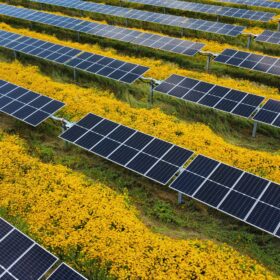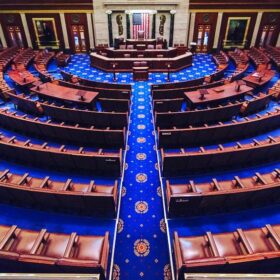When President Donald J. Trump talks about improving enforcement of U.S. trade laws, it’s music to SolarWorld’s ears – and it hopes the tough talk is backed by tough actions.
In the document released Wednesday, Trump argues that it is nearly impossible for U.S. companies to compete against foreign imports that are typically subsidized by the governments of those countries. The document, in keeping with Trump’s rhetoric on trade since the campaign, focuses primarily on China. The document calls for clear trade rules, as well as the use and enforcement of trade-defense instruments to restore fair competition and maintain efficient markets.
“[The United States] will not tolerate these unfair trade practices that harm American workers, farmers, ranchers, and businesses,” the trade-agenda document says. “These practices lower living standards for all Americans by distorting U.S. and global markets and preventing resources from being allocated in the most efficient manner.”
In the past two years, the Chinese manufacturers have produced huge volumes of solar panels in response to unrealistic domestic solar-installation goals set by the Chinese government. Once again, SolarWorld and other U.S. solar manufacturers are seeing reduced margins, which echo the 2011 panel-price collapse and put pressure on the slim margins of U.S. panel manufacturers.
Stein says the company welcomes the emphasis on trade law enforcement in light of its potential to save U.S. jobs and manufacturing.
“We cannot allow China now to monopolize the sun by violating trade rules and engaging in unfair competition,” says Juergen Stein, U.S. president of SolarWorld. “Trade defense is necessary to address the fact that non-market economies such as China are strategically building up state-financed over-capacities and severely damaging market-economy industries like the solar industry.”
SolarWorld’s interest in stopping Chinese exports of subsidized solar panels goes back to 2011 when, in response to optimistic projections on the size of the world solar market, Chinese manufacturers ramped up production capacities and produced enormous quantities of panels intended for export.
This over-supply of modules lowered global module prices, wreaking havoc on both Chinese and Western panel manufacturers’ margins and putting many Western PV makers out of business. SolarWorld, which manufacturers cells and modules in Oregon, decided it would lead a coalition of manufacturers in an effort to stop what it argued was intentional dumping.
In November 2011, the company filed the first of two anti-dumping and anti-subsidy cases against China, which led the United States to impose steep tariffs on Chinese cells. This led to a widespread use of Taiwanese PV cells, and in 2013, SolarWorld filed another complaint against both Chinese cells and modules and Taiwanese cells, which led to more tariffs being imposed.
In the last few years, many Chinese manufacturers have set up manufacturing capacity in Southeast Asia in an effort to avoid these tariffs altogether.
This content is protected by copyright and may not be reused. If you want to cooperate with us and would like to reuse some of our content, please contact: editors@pv-magazine.com.








By submitting this form you agree to pv magazine using your data for the purposes of publishing your comment.
Your personal data will only be disclosed or otherwise transmitted to third parties for the purposes of spam filtering or if this is necessary for technical maintenance of the website. Any other transfer to third parties will not take place unless this is justified on the basis of applicable data protection regulations or if pv magazine is legally obliged to do so.
You may revoke this consent at any time with effect for the future, in which case your personal data will be deleted immediately. Otherwise, your data will be deleted if pv magazine has processed your request or the purpose of data storage is fulfilled.
Further information on data privacy can be found in our Data Protection Policy.